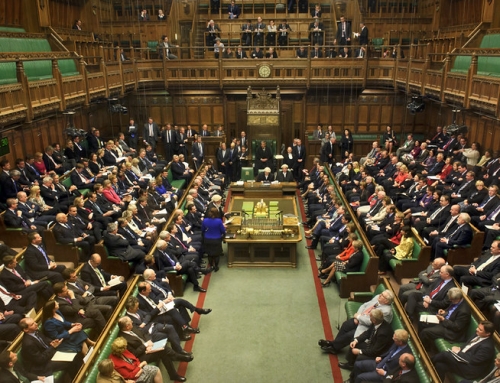 Comprehensive Future has responded to the Labour Party’s consultation on a National Education Service. We believe Labour should go beyond an opposition to new grammar schools and adopt a consistent policy on selection and a commitment to fully comprehensive education. The 11-plus test should be phased out in all areas that still have grammar schools.
Comprehensive Future has responded to the Labour Party’s consultation on a National Education Service. We believe Labour should go beyond an opposition to new grammar schools and adopt a consistent policy on selection and a commitment to fully comprehensive education. The 11-plus test should be phased out in all areas that still have grammar schools.
We are pleased to see that many people have already responded to the Labour Party’s consultation to make this same point. The consultation runs until June 24th, and you do not have to be a Labour member to contribute. If you believe that Labour should phase out selection then please take part in this important consultation and have your say. A detailed submission isn’t necessary you can simply state that you’d like 11-plus selection to end. You can make your submission by clicking here.
Here is our consultation submission.
Comprehensive Future warmly welcomes this consultation. Whilst supporting the ethos and aims of Labour’s proposed National Education Service charter, we believe there are two specific areas where Labour should make a stronger commitment to change: selection and admissions.
Comprehensive Future is a non-aligned all-party organisation with supporters in all the main political parties. Our vision is a system where every school welcomes local children of all abilities and offers an excellent quality of education. We believe this requires a fair and inclusive admissions system and an end to the 11-plus. We are not affiliated to the Labour Party but much of the ethos running through Towards a National Education Service matches
our own values. This submission reflects detailed discussions with our supporters and members.
• We warmly welcome the fact that the NES seeks to address “both the social and economic challenges that Britain faces in the years ahead.” Too often social
challenges, such as community cohesion and the emotional wellbeing of children, are overlooked in the pursuit of academic results.
• We share the belief expressed in Towards a National Education Service that “everyone, whatever their background, should be given the opportunity to reach their potential, to succeed not just in the world of work but in their own development.”
• We agree on the importance of looking to the future and that “as new industries emerge and the world of work changes, equipping people with new skills throughout their lives will be imperative.”
We believe that these three statements are incompatible with a selective education system.
Selective education does not address social challenges – it causes them. Tens of thousands of young children are branded a failure by the 11-plus every single year. In the words of Dr Nadia Siddiqui, Assistant Professor at Durham University: “In areas with selective schools, the system leads to increased social and economic segregation between schools which has consequences for huge numbers of pupils in the non-selective schools such as lower self-esteem, poorer role models, poorer relationships and distorted sense of justice.
• Selective education does not enable everyone, whatever their background, to reach their potential – it rewards the better-off and often the very wealthy. New research from Durham University has conclusively proven that grammar schools do not further social mobility: “the apparent success of grammar schools is simply due to the pupils coming from more advantaged social backgrounds and already having higher academic attainment at age 11.
With more affluent parents spending up to £5,000 on private tutors to prepare their children from the 11-plus, it is little wonder that grammar schools are preserves of privilege. Just 2% of grammar school pupils receive free school meals (compared to 14% in other schools) and just 0.3%
grammar school pupils have special educational needs (compared to 4% in other schools).
• Selective education is utterly unfit to prepare young people for the changing world of work. The 11-plus was a mid-20th century idea which reflected the assumptions of the mid-20th century economy. Deindustrialisation, the rise of the professions and the growth of a small and medium-sized enterprise sector meant that the 11-plus was no longer fit for purpose by the 1960s. Further economic change means that it is now utterly archaic. Rather than a system which grooms a small elite for management and consigns the majority to low expectations, we urgently need an education system which equips every young person with the skills and confidence to thrive in today’s global economy. This is why international education researcher Lucy Crehan has stated that “a move back towards grammar schools would be a step further away from our most successful competitors, and towards educational isolationism” and why former Ofsted Chief Inspector Sir Michael Wilshaw has argued that,“if our international competitors think that the future is comprehensive, why shouldn’t we?”
To read more of Comprehensive Future’s submission click here.




